What Are Morning Pages? (And 20 Tips To Start)
10 min readMorning Pages are an incredible tool that bring clarity and unleash your creativity. But how do you actually start – and keep going? Does waking up early to write 3 full pages of your innermost thoughts sound slightly crazy and impossible? It’s not easy to let go of your inhibitions and set your emotions free in a journal. Especially not early in the morning, when you’re just trying to have breakfast and wake up. But once you get into the habit, Morning Pages become as effortless as downing your morning coffee. And just as indispensable. Not everything you write in your journal will be wise and profound. But that’s not the point of Morning Pages. Because when you skip a few days you’ll notice the impact Morning Pages make in your life. They’re often called a life-changing habit. So what exactly are Morning Pages? Morning Pages explained Morning Pages are a cathartic brain dump in which you write 3 full pages of whatever comes into your mind. The trick isn’t to compose a perfect journal entry. Morning Pages are a stream-of-consciousness release of pent-up thoughts and unexpressed emotions. Your Morning Pages won’t always be eloquent or exciting. And sometimes they won’t even make much sense. But they’re meant to be uncensored and written for your eyes only. They’re a tool to gain clarity – not a polished finished product. Morning Pages are a journaling technique invented by Julia Cameron in her book The Artist’s Way, a handbook to living a more creative life. The book, which also recommends taking yourself on weekly solo artist dates, doesn’t budge off the best-seller lists. And it keeps getting discovered by new generations. And its become wildly popular. Bella Hadid has been seen totting Cameron’s book. And the #morningpages hashtag has millions of views on TikTok. Cameron even wrote a follow-up titled The Miracle of Morning Pages, a companion to The Artist’s Way that dives deeper into this powerful journaling method. Why are Morning Pages so popular? Morning Pages help you tackle your day with greater clarity and self-awareness. The benefits won’t always be obvious when you’re struggling to finish off those 3 pages. But you’ll definitely notice the difference when you skip a few days. You’ll feel more anxious and your thoughts will seem muddled. Are Morning Pages worth it? The free-form writing of Morning Pages helps you clarify your thoughts. And it gives shape to the constant stream of worries that race through your mind. And like so many other journaling techniques, Morning Pages bring you comfort in difficult times. They offer you perspective on your problems. Morning Pages also help you prioritize your life and plan out your day. If you wake up not knowing where to even start with your to-do list, emails and projects, then journaling is a powerful tool that cuts through the noise. It gets to what’s essential. The benefits of Morning Pages Morning Pages clear your mind when it’s swimming with noisy thoughts, questions and anxieties. They take those anxious thoughts off your shoulders and set them down on paper. They make you more creative and let you discover fresh ideas and possibilities. When you let your mind wander and spill your thoughts across a page, you’ll be surprised where it takes you. Morning Pages give you a break from the constant stream of social media and entertainment that you consume. They put you in touch with your innermost voice and give you a better sense of self. Morning Pages let you vent and let out your emotions during difficult times. Writing down your worries stops your mind from re-playing them in a loop. It also frees up your mind for more reflective thoughts. Morning Pages push you past your inner censor. They let you confront your worst inner critic and your drive for perfection. They allow you to just write and honor your thoughts – no matter how messy and absurd they are. Morning Pages give you purpose. They let you examine your life and set your creativity free. They give reign to your imagination outside of your everyday life. Cameron says: There is no wrong way to do Morning Pages – they are not high art. They are not even “writing.” They are about anything and everything that crosses your mind – and they are for your eyes only. Morning Pages provoke, clarify, comfort, cajole, prioritize and synchronize the day at hand. Do not over-think Morning Pages: just put three pages of anything on the page…and then do three more pages tomorrow. Should you use a Morning Pages app? Morning Pages are about slowing down your thoughts and reflecting. So they’re best done on paper in a physical notebook. And that means full-sized A4 paper to reap the full benefits of a daily journaling practice. Writing on a sheet of paper forces your mind to slow down, unlike the rapid, automatic typing done on your laptop or phone. Morning Pages vs. journaling Morning Pages are a journaling technique that involve writing 3 pages of stream of consciousness thoughts every morning. They’re about writing whatever comes into your mind, uncensored and unedited. A journal, on the other hand, takes many different forms. A journal can be a diary that records your everyday life. Or it can be used for positive affirmations, dream journaling or working through anxiety and depression. Some online advice tells you to fill your Morning Pages with positive affirmations, to-do lists, art sketches or reflections on specific prompts. And that free-handed approach certainly makes it easier to fill up those pages. But Morning Pages aren’t just about filling up 3 pages with anything. They’re a specific technique developed by Cameron that involves a certain amount of pages of pure stream-of-consciousness thoughts. To get the full benefits of Morning Pages, do them as intended. Morning Pages example How do Morning Pages actually look like? Mine are sloppy because I write fast and I don’t worry about making my handwriting legible. They’re random and disorganized. On one page, I’m writing about the annoying updates on Pinterest. On another page, I’m writing about how I miss the sound of ocean waves. They’re unstructured just like your thoughts when they occur in your mind. I write my Morning Pages in thick, spiral-bound notebooks that are easy to flip through and keep open on my lap. I usually write them on my balcony when it’s sunny or in bed with my morning coffee. And when my spiral notebook gets full, I put it away in a chest that’s also packed with winter clothes (that I never wear in Cairo), old watercolors and bulky camera bags. How to do Morning Pages every single day If you’re not used to daily journaling, then starting a Morning Pages habit might feel impossible. Especially if you’re not a morning person. How can you get into the journaling groove and make Morning Pages a part of your daily routine? Here are my top hacks and insights to doing Morning Pages, based on my years of journaling experience and all my hits and misses: 1. Anchor your Morning Pages onto an already existing habit If you love to scroll social media in bed and check your emails over coffee, then replace those habits with Morning Pages instead. If you always have a cup of tea at your kitchen counter after breakfast, then always have that tea while journaling. 2. Make time in the morning If you’re rushed in the morning and can’t imagine doing any journaling, then set your alarm for earlier. Or make some extra time in the morning by prepping your breakfast (and your daily outfit) the night before. Think of it this way: that half hour in the morning with your journal gives you a kind of clarity that ultimately saves you hours throughout your day. 3. Don’t hold back The more you self-censor and overthink your writing, the more difficult your journaling session will be. Get past your perfectionism and just write whatever comes into your head – no matter how silly or banal. Don’t judge yourself. 4. Give yourself a time limit Set a timer for 30 minutes when you start your Morning Pages habit. A timer puts some extra pressure on you to just get on with writing, no matter how half-baked it feels. 5. Focus on the end product The goal is to write 3 full pages, not to compose a thoughtful essay about your life. Morning Pages are all about the process. The writing itself matters less than the act of writing Morning Pages. 6. Don’t share Morning Pages are for your eyes only. Don’t share what you’ve written with others. If you do, you’ll find yourself writing what you think other people will admire. The point of Morning Pages is to get in touch with your authentic self. 7. Use real paper It’s tempting to install a journaling app for your Morning Pages. But Cameron insists on the benefits of writing longhand vs. typing. “Velocity is the enemy,” Cameron says. “It takes longer to write by hand, and this slowness connects us to our emotional life.” Typing on a computer is a more detached process than writing by hand. Typing gives us speed – but longhand gives us depth. 8. Stick with it Morning Pages aren’t easy at first and they’ll often feel pointless. But have faith. Keep up the habit and they’ll get easier. It takes a few weeks to get into the flow with your Morning Pages, but you’ll get there. 9. Don’t expect miracles Morning Pages are life-changing. And you’ll be amazed at the ideas you come up with during your daily journaling sessions. But don’t expect regular epiphanies. There will be days when your words don’t flow and your writing feels labored. Those days are part of the process. 10. Don’t edit yourself You’ll be tempted to stop and rephrase what you’re writing. You’ll want to self-censor and edit. Make it your goal to pause as little as possible when you’re doing Morning Pages. And write as quickly as the thoughts occur in your mind. This kind of stream-of-consciousness writing is the best way to reap the benefits of Morning Pages. If you think too much, you won’t get as much out of journaling. 11. Push through that second page The second and third page are often the most difficult. But they also bring incredible benefits and insight. Because you’ve already written the small talk and you’ve moved on to deeper reflections. 12. Don’t abandon the habit when you miss a few days Don’t beat yourself up when you fall behind with your Morning Pages. Just get back into it and realize it’s better to keep going than get discouraged and quit. 13. Treat morning pages as a meditation Don’t judge the thoughts that stream into your mind. Just record them without overthinking. 14. Keep your tools ready Have your pen and notebook in the same spot, laid out the night before, so you don’t procrastinate by looking for your supplies. 15. Track your journaling habit Put an x in your calendar next to each day that you’ve finished your Morning Pages. Reward yourself every few weeks for keeping the streak going. 16. Romanticize the process Light a scented candle, put on a classical piano playlist or dab on some of your favorite perfume before you start journaling. This makes your time with Morning Pages a real sensory pleasure. 17. Mark and highlight your writing If you come up with some new ideas while doing your Morning Pages, highlight the passage or number the items. This creates an easy reference when you want to refer back to your journal. 18. Do Morning Pages first thing Don’t wait too long after you wake up to start your Morning Pages. “You’re trying to catch yourself before your ego’s defenses are in place,” Cameron says. Morning Pages must be done early in the morning when your brain is still in touch with that...
The post What Are Morning Pages? (And 20 Tips To Start) appeared first on Vanilla Papers.
Morning Pages are an incredible tool that bring clarity and unleash your creativity. But how do you actually start – and keep going?
Does waking up early to write 3 full pages of your innermost thoughts sound slightly crazy and impossible?
It’s not easy to let go of your inhibitions and set your emotions free in a journal. Especially not early in the morning, when you’re just trying to have breakfast and wake up.
But once you get into the habit, Morning Pages become as effortless as downing your morning coffee. And just as indispensable.
Not everything you write in your journal will be wise and profound. But that’s not the point of Morning Pages.
Because when you skip a few days you’ll notice the impact Morning Pages make in your life. They’re often called a life-changing habit.
So what exactly are Morning Pages?
Morning Pages explained
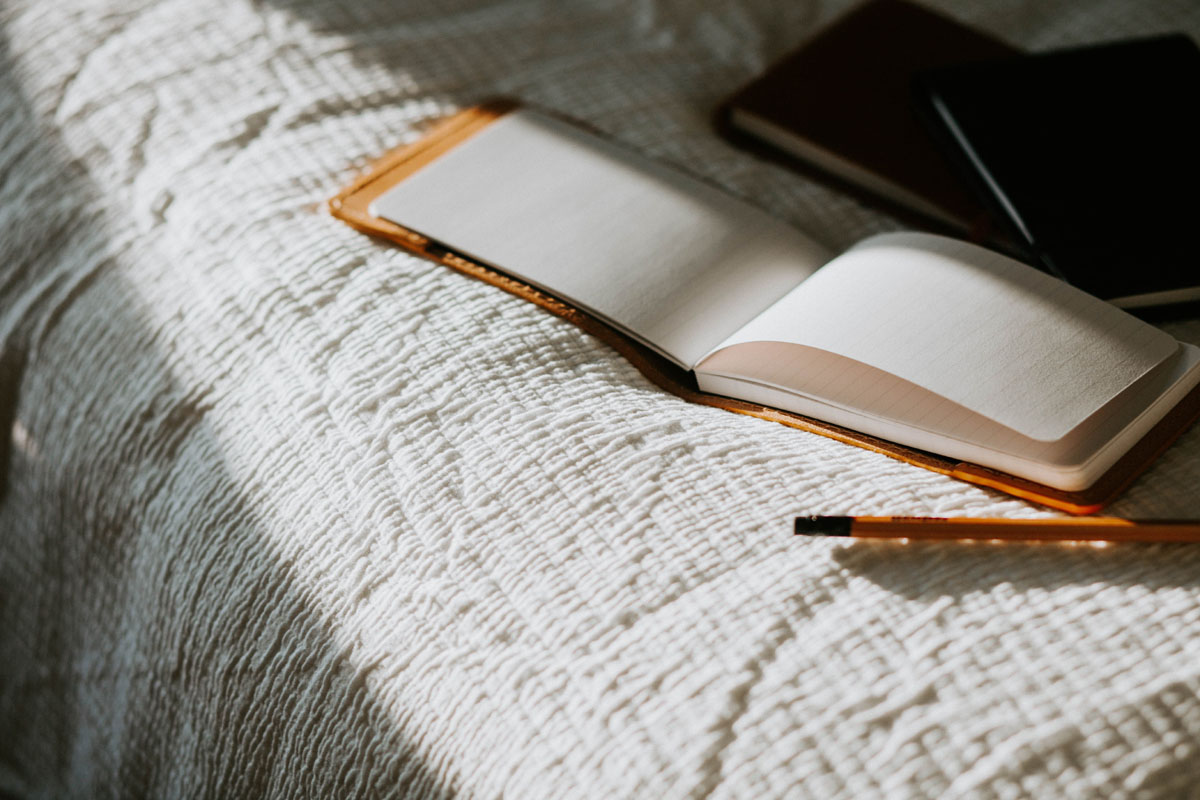

Morning Pages are a cathartic brain dump in which you write 3 full pages of whatever comes into your mind.
The trick isn’t to compose a perfect journal entry. Morning Pages are a stream-of-consciousness release of pent-up thoughts and unexpressed emotions.
Your Morning Pages won’t always be eloquent or exciting. And sometimes they won’t even make much sense.
But they’re meant to be uncensored and written for your eyes only.
They’re a tool to gain clarity – not a polished finished product.
Morning Pages are a journaling technique invented by Julia Cameron in her book The Artist’s Way, a handbook to living a more creative life.
The book, which also recommends taking yourself on weekly solo artist dates, doesn’t budge off the best-seller lists. And it keeps getting discovered by new generations.


And its become wildly popular. Bella Hadid has been seen totting Cameron’s book. And the #morningpages hashtag has millions of views on TikTok.
Cameron even wrote a follow-up titled The Miracle of Morning Pages, a companion to The Artist’s Way that dives deeper into this powerful journaling method.
Why are Morning Pages so popular?
Morning Pages help you tackle your day with greater clarity and self-awareness.
The benefits won’t always be obvious when you’re struggling to finish off those 3 pages. But you’ll definitely notice the difference when you skip a few days.
You’ll feel more anxious and your thoughts will seem muddled.
Are Morning Pages worth it?
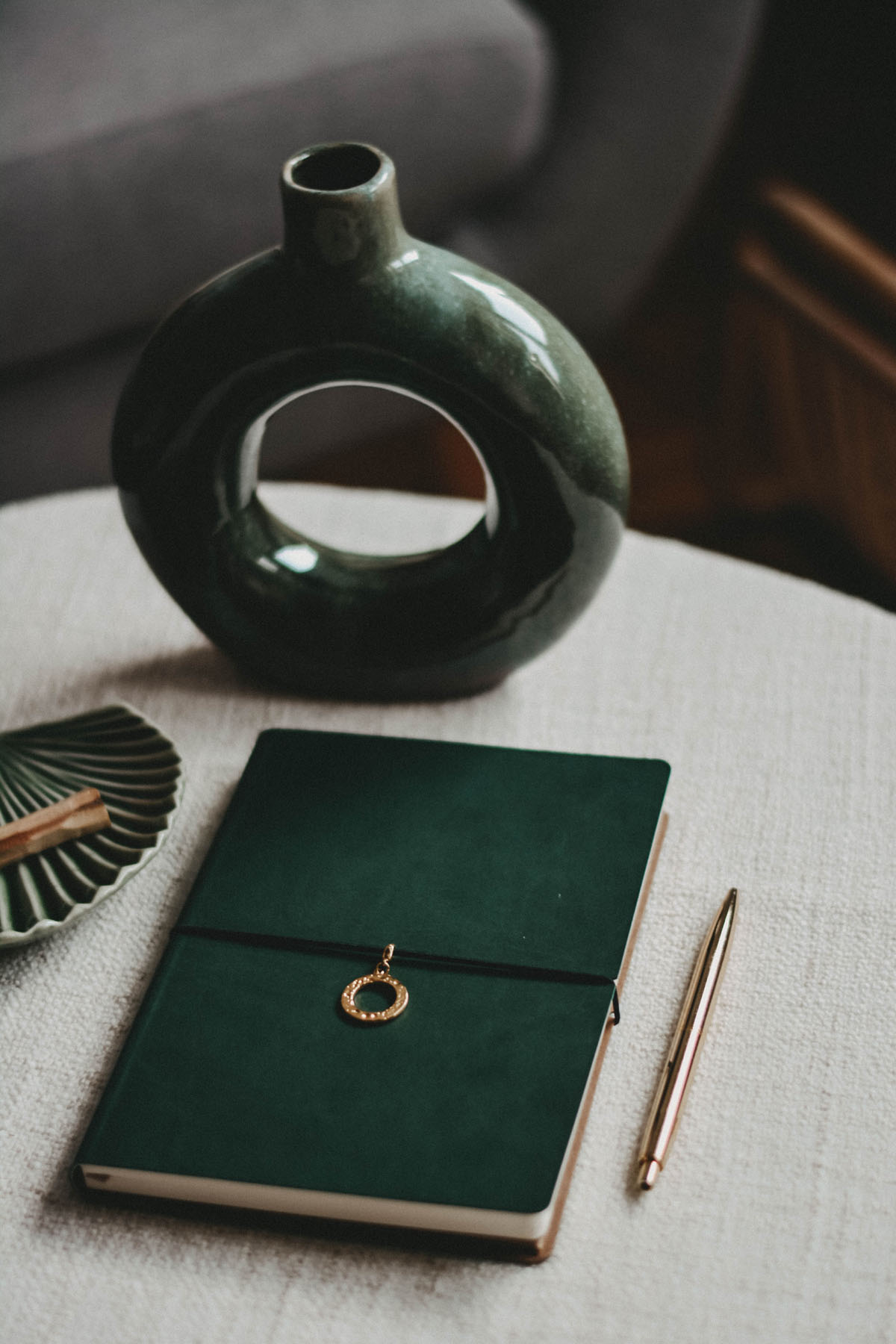

The free-form writing of Morning Pages helps you clarify your thoughts. And it gives shape to the constant stream of worries that race through your mind.
And like so many other journaling techniques, Morning Pages bring you comfort in difficult times. They offer you perspective on your problems.
Morning Pages also help you prioritize your life and plan out your day.
If you wake up not knowing where to even start with your to-do list, emails and projects, then journaling is a powerful tool that cuts through the noise. It gets to what’s essential.
The benefits of Morning Pages
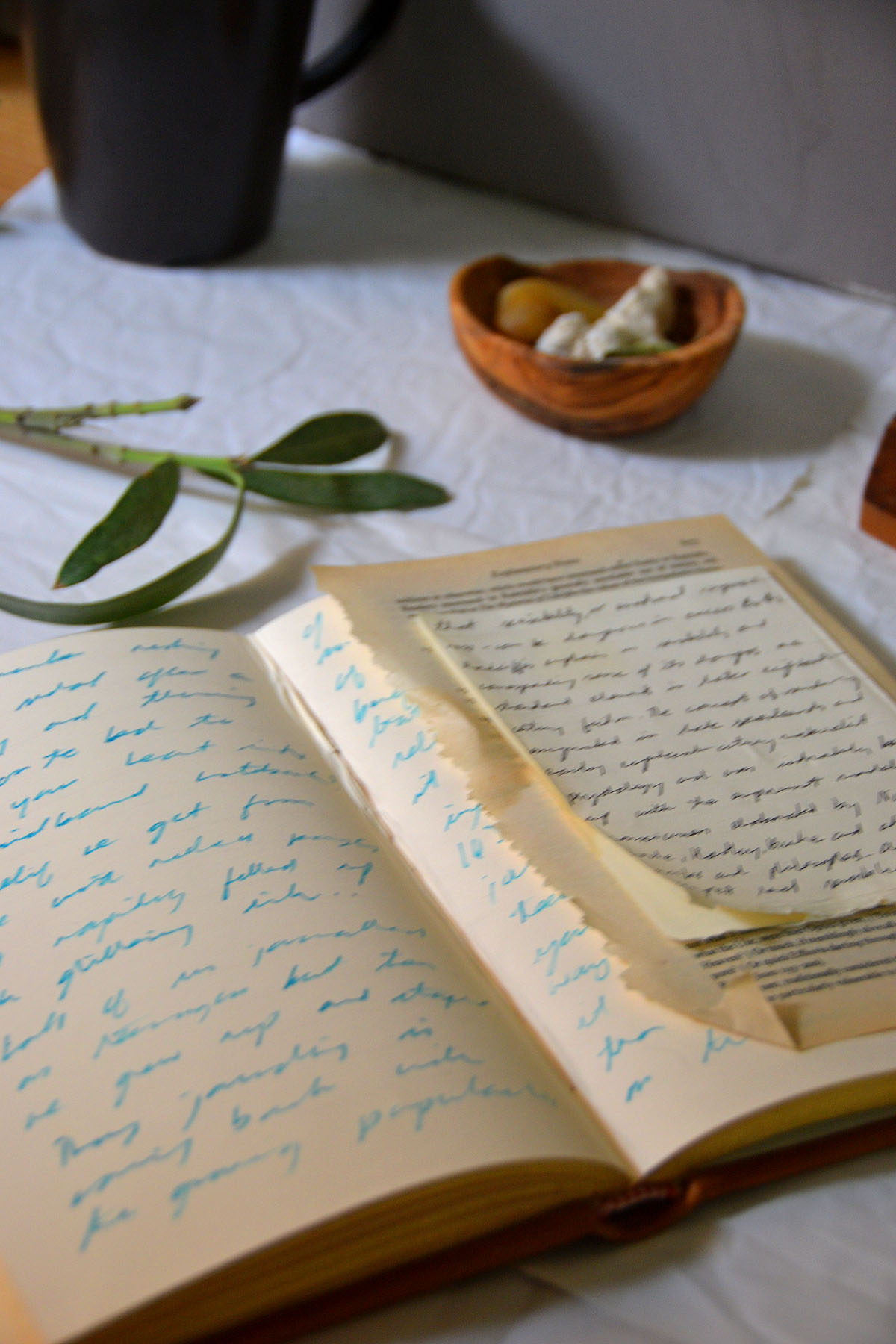

- Morning Pages clear your mind when it’s swimming with noisy thoughts, questions and anxieties. They take those anxious thoughts off your shoulders and set them down on paper.
- They make you more creative and let you discover fresh ideas and possibilities. When you let your mind wander and spill your thoughts across a page, you’ll be surprised where it takes you.
- Morning Pages give you a break from the constant stream of social media and entertainment that you consume.
- They put you in touch with your innermost voice and give you a better sense of self.
- Morning Pages let you vent and let out your emotions during difficult times. Writing down your worries stops your mind from re-playing them in a loop. It also frees up your mind for more reflective thoughts.
- Morning Pages push you past your inner censor. They let you confront your worst inner critic and your drive for perfection.
- They allow you to just write and honor your thoughts – no matter how messy and absurd they are.
- Morning Pages give you purpose. They let you examine your life and set your creativity free. They give reign to your imagination outside of your everyday life.
Cameron says:
There is no wrong way to do Morning Pages – they are not high art. They are not even “writing.” They are about anything and everything that crosses your mind – and they are for your eyes only. Morning Pages provoke, clarify, comfort, cajole, prioritize and synchronize the day at hand. Do not over-think Morning Pages: just put three pages of anything on the page…and then do three more pages tomorrow.
Should you use a Morning Pages app?
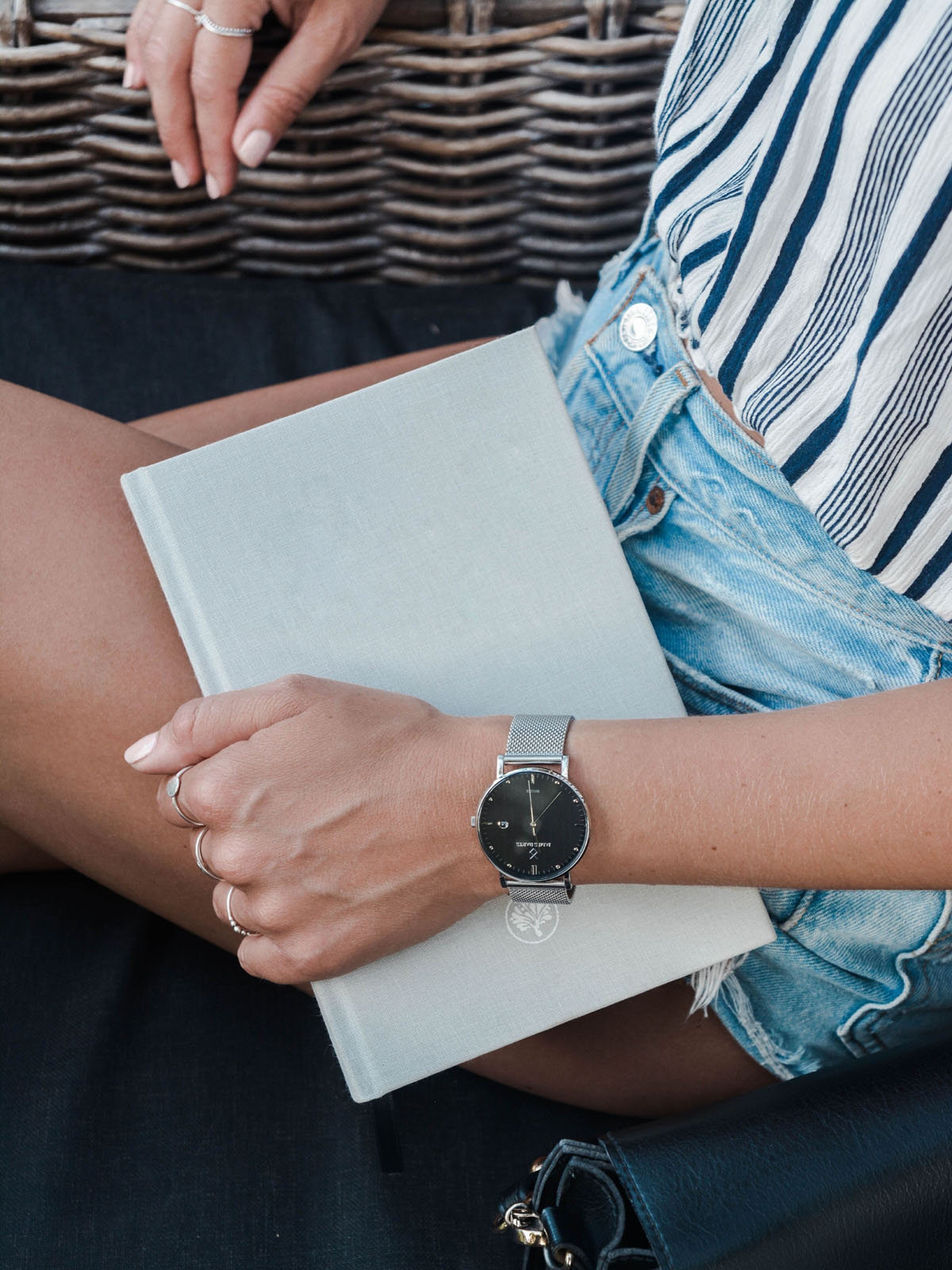

Morning Pages are about slowing down your thoughts and reflecting. So they’re best done on paper in a physical notebook.
And that means full-sized A4 paper to reap the full benefits of a daily journaling practice.
Writing on a sheet of paper forces your mind to slow down, unlike the rapid, automatic typing done on your laptop or phone.
Morning Pages vs. journaling
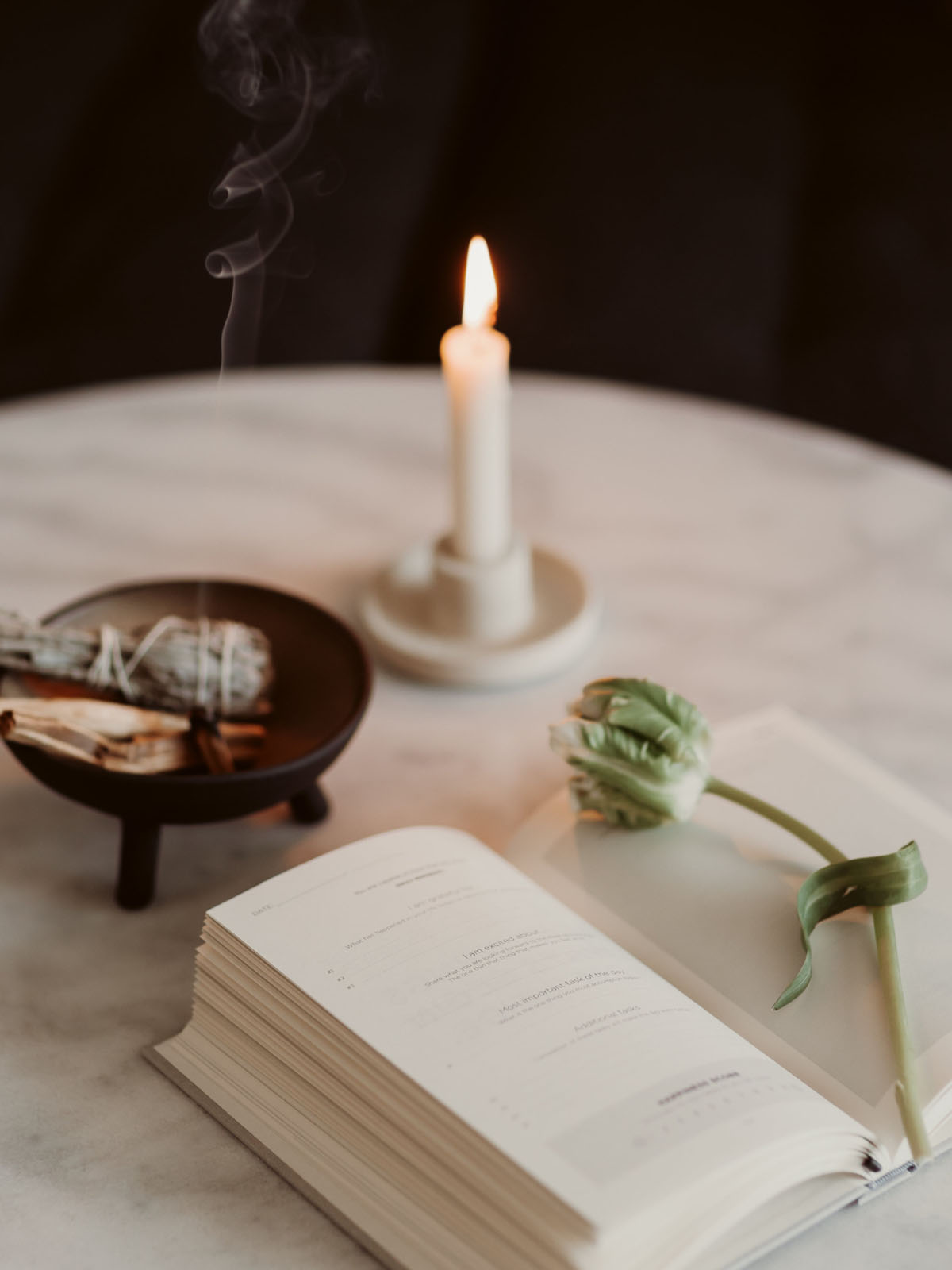

Morning Pages are a journaling technique that involve writing 3 pages of stream of consciousness thoughts every morning.
They’re about writing whatever comes into your mind, uncensored and unedited.
A journal, on the other hand, takes many different forms.
A journal can be a diary that records your everyday life. Or it can be used for positive affirmations, dream journaling or working through anxiety and depression.
Some online advice tells you to fill your Morning Pages with positive affirmations, to-do lists, art sketches or reflections on specific prompts.
And that free-handed approach certainly makes it easier to fill up those pages.
But Morning Pages aren’t just about filling up 3 pages with anything.
They’re a specific technique developed by Cameron that involves a certain amount of pages of pure stream-of-consciousness thoughts.
To get the full benefits of Morning Pages, do them as intended.
Morning Pages example
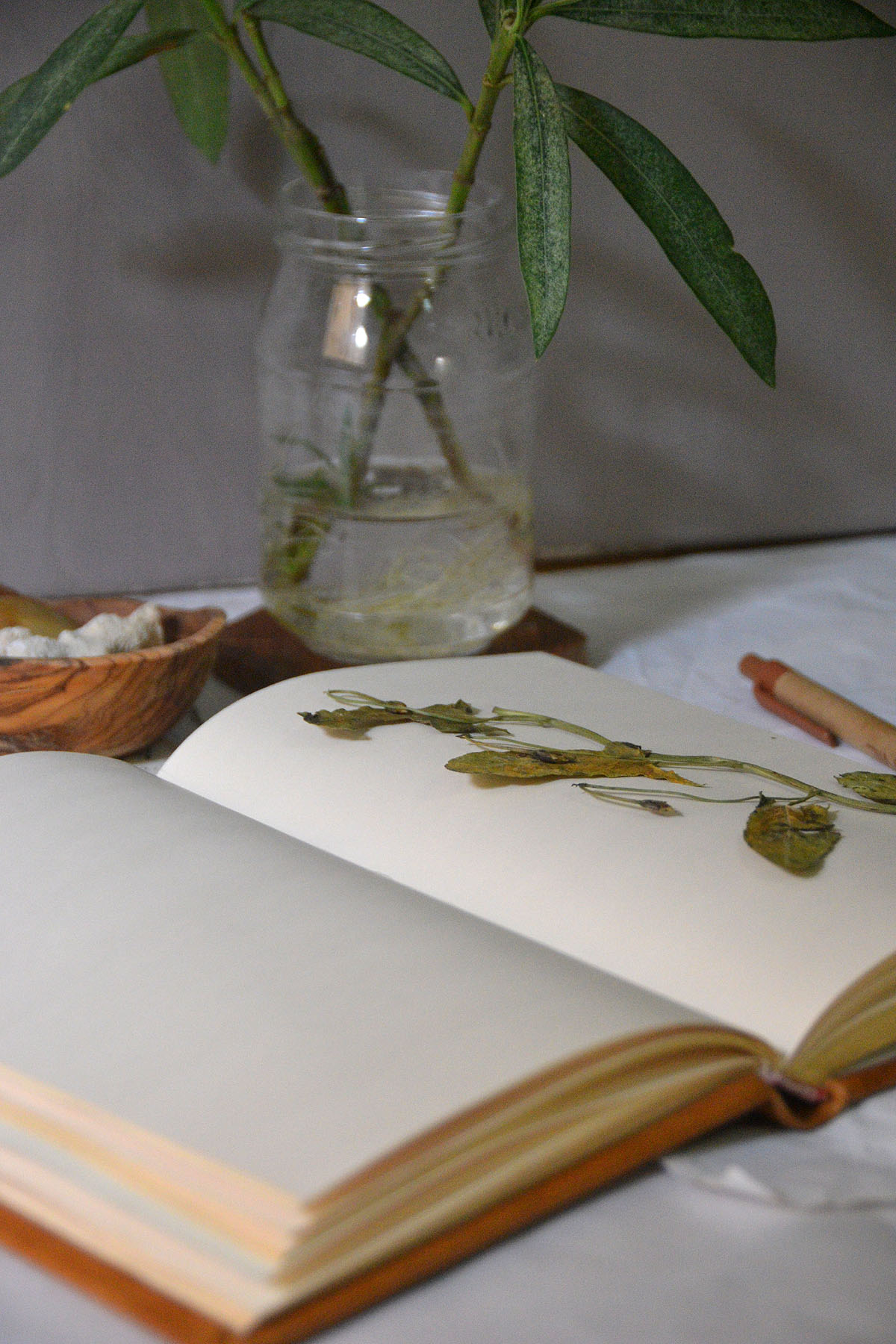

How do Morning Pages actually look like?
Mine are sloppy because I write fast and I don’t worry about making my handwriting legible.
They’re random and disorganized. On one page, I’m writing about the annoying updates on Pinterest. On another page, I’m writing about how I miss the sound of ocean waves.
They’re unstructured just like your thoughts when they occur in your mind.
I write my Morning Pages in thick, spiral-bound notebooks that are easy to flip through and keep open on my lap. I usually write them on my balcony when it’s sunny or in bed with my morning coffee.
And when my spiral notebook gets full, I put it away in a chest that’s also packed with winter clothes (that I never wear in Cairo), old watercolors and bulky camera bags.
How to do Morning Pages every single day
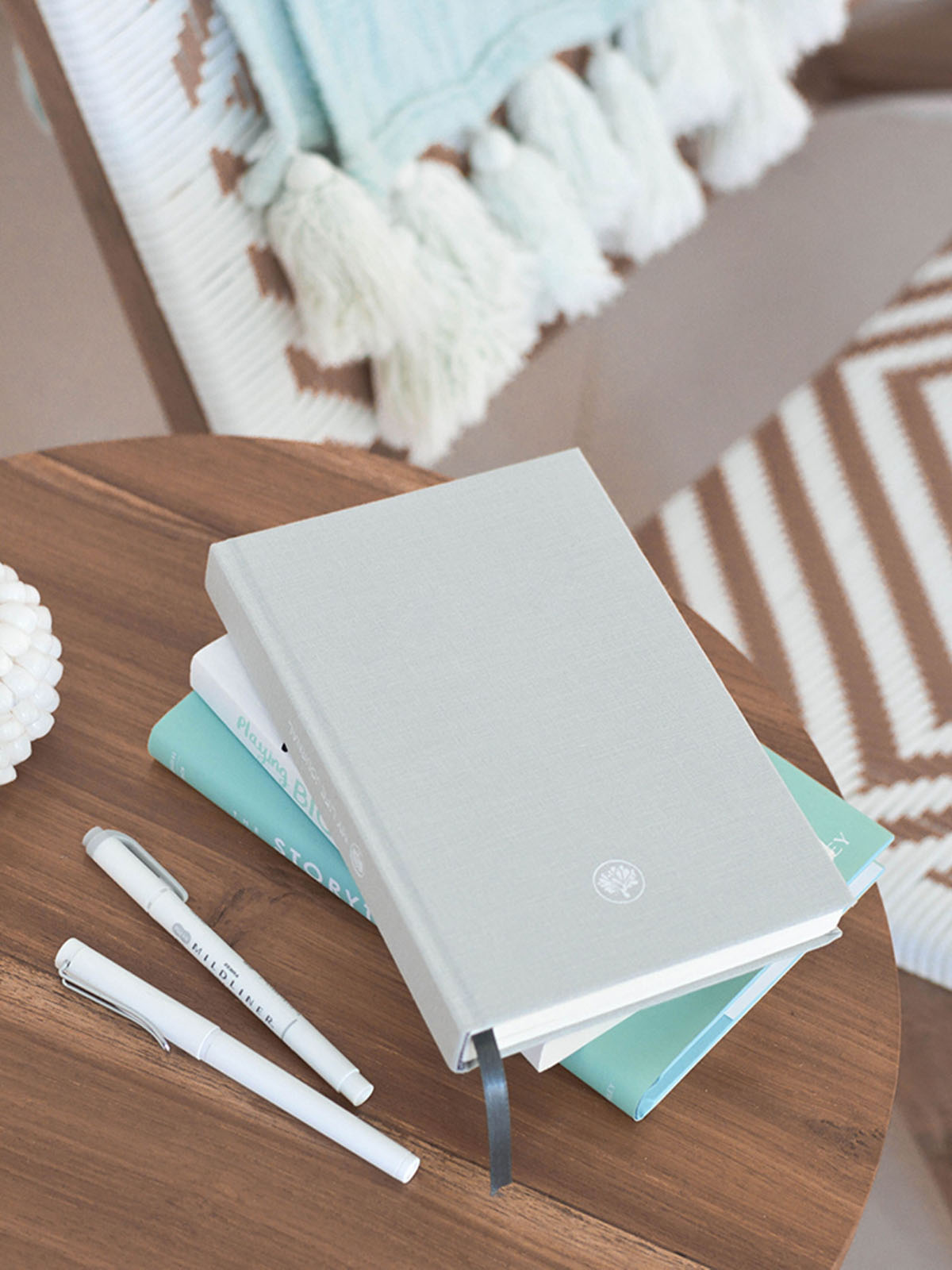

If you’re not used to daily journaling, then starting a Morning Pages habit might feel impossible.
Especially if you’re not a morning person.
How can you get into the journaling groove and make Morning Pages a part of your daily routine?
Here are my top hacks and insights to doing Morning Pages, based on my years of journaling experience and all my hits and misses:
1. Anchor your Morning Pages onto an already existing habit
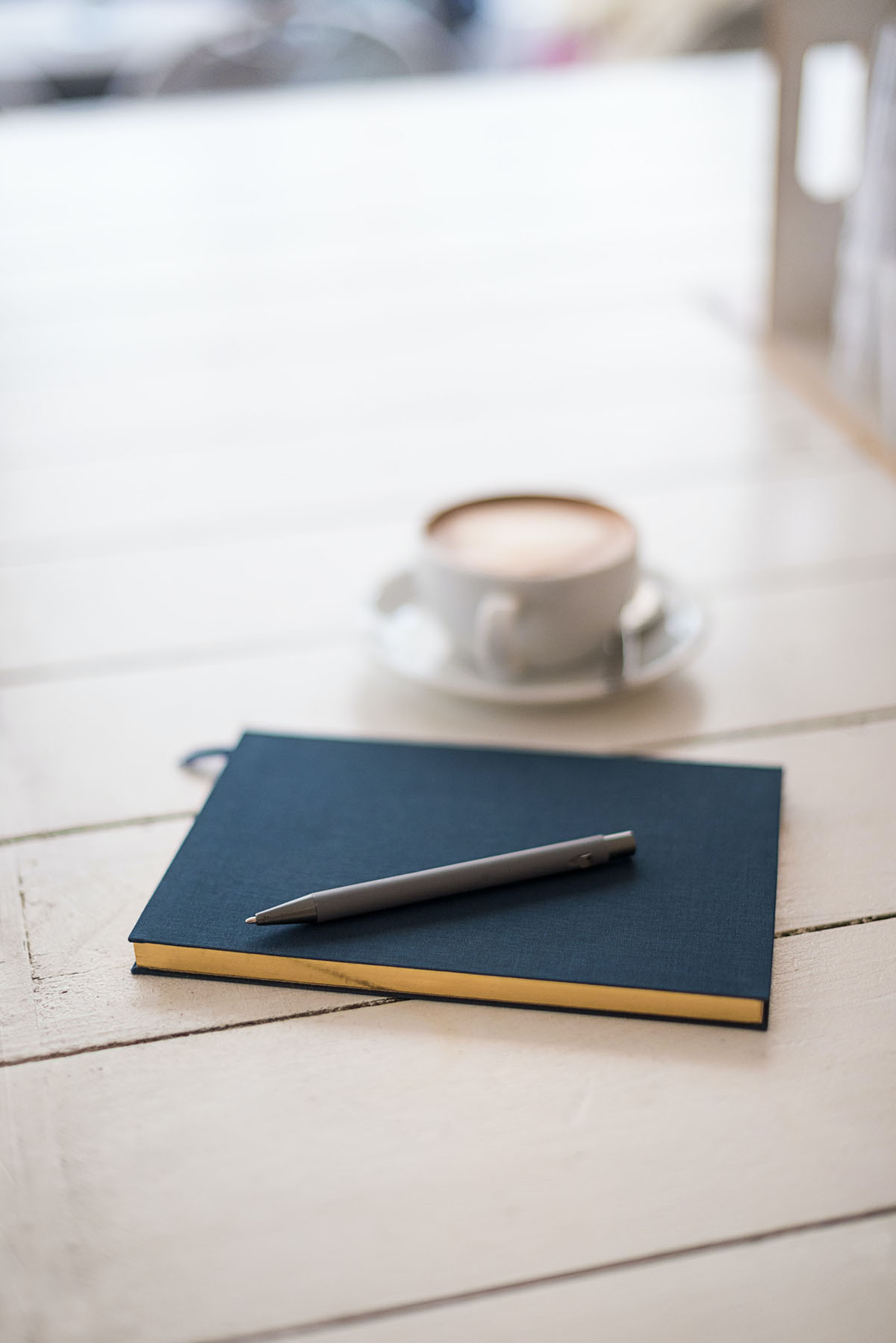

If you love to scroll social media in bed and check your emails over coffee, then replace those habits with Morning Pages instead.
If you always have a cup of tea at your kitchen counter after breakfast, then always have that tea while journaling.
2. Make time in the morning
If you’re rushed in the morning and can’t imagine doing any journaling, then set your alarm for earlier.
Or make some extra time in the morning by prepping your breakfast (and your daily outfit) the night before.
Think of it this way: that half hour in the morning with your journal gives you a kind of clarity that ultimately saves you hours throughout your day.
3. Don’t hold back
The more you self-censor and overthink your writing, the more difficult your journaling session will be.
Get past your perfectionism and just write whatever comes into your head – no matter how silly or banal.
Don’t judge yourself.
4. Give yourself a time limit
Set a timer for 30 minutes when you start your Morning Pages habit.
A timer puts some extra pressure on you to just get on with writing, no matter how half-baked it feels.
5. Focus on the end product
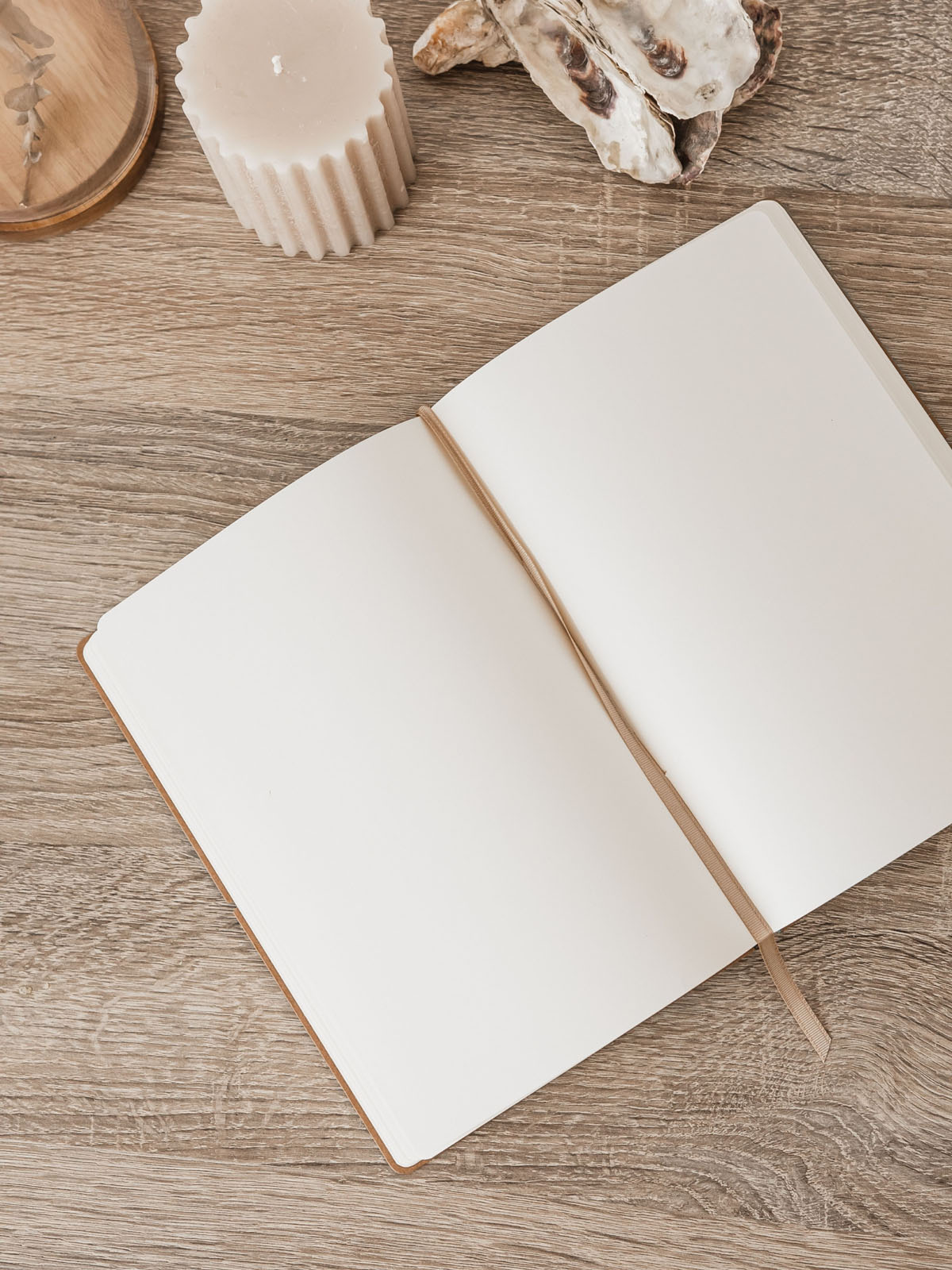

The goal is to write 3 full pages, not to compose a thoughtful essay about your life.
Morning Pages are all about the process.
The writing itself matters less than the act of writing Morning Pages.
6. Don’t share
Morning Pages are for your eyes only. Don’t share what you’ve written with others.
If you do, you’ll find yourself writing what you think other people will admire.
The point of Morning Pages is to get in touch with your authentic self.
7. Use real paper
It’s tempting to install a journaling app for your Morning Pages. But Cameron insists on the benefits of writing longhand vs. typing.
“Velocity is the enemy,” Cameron says. “It takes longer to write by hand, and this slowness connects us to our emotional life.”
Typing on a computer is a more detached process than writing by hand. Typing gives us speed – but longhand gives us depth.
8. Stick with it
Morning Pages aren’t easy at first and they’ll often feel pointless.
But have faith. Keep up the habit and they’ll get easier.
It takes a few weeks to get into the flow with your Morning Pages, but you’ll get there.
9. Don’t expect miracles
Morning Pages are life-changing. And you’ll be amazed at the ideas you come up with during your daily journaling sessions.
But don’t expect regular epiphanies.
There will be days when your words don’t flow and your writing feels labored. Those days are part of the process.
10. Don’t edit yourself
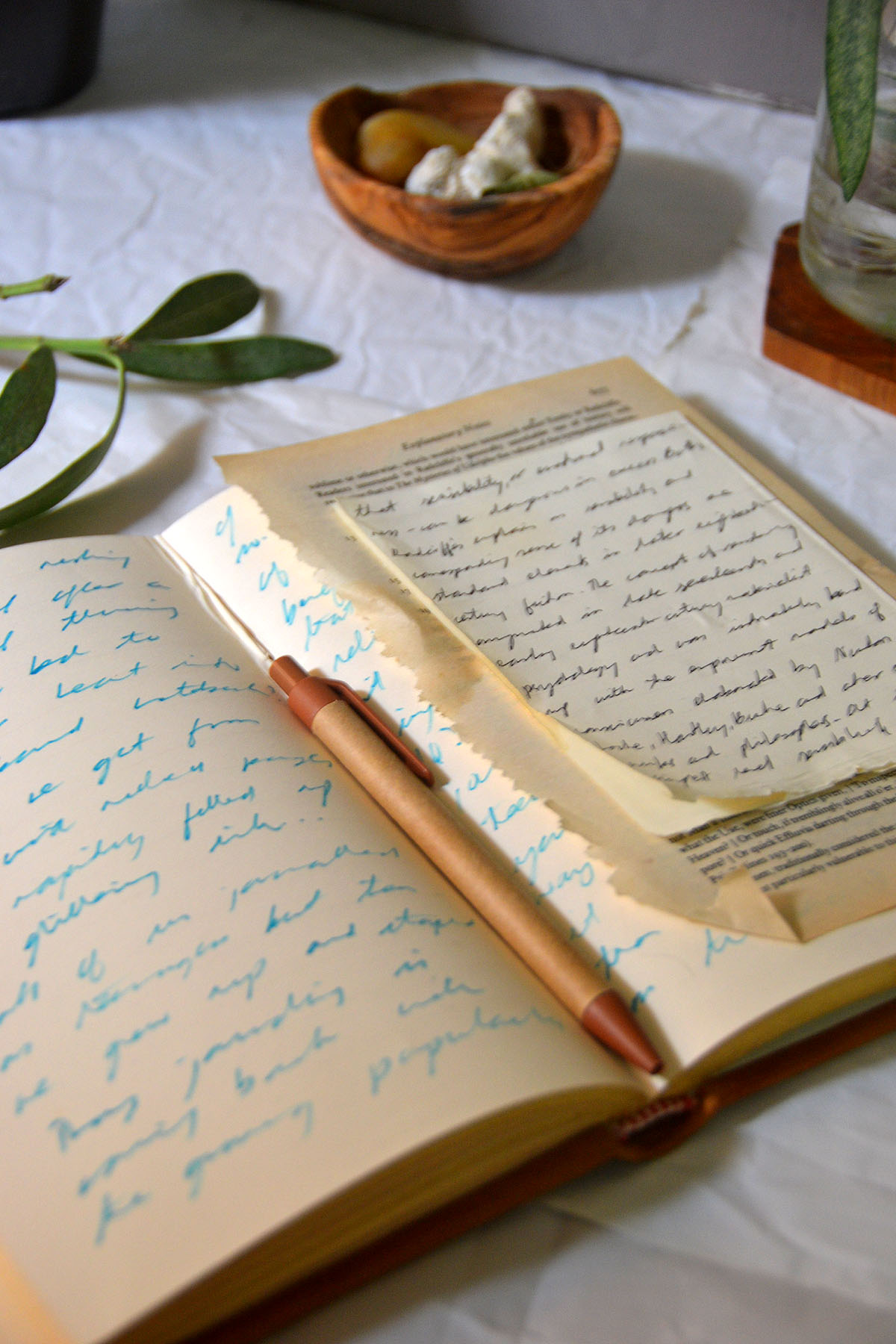

You’ll be tempted to stop and rephrase what you’re writing. You’ll want to self-censor and edit.
Make it your goal to pause as little as possible when you’re doing Morning Pages. And write as quickly as the thoughts occur in your mind.
This kind of stream-of-consciousness writing is the best way to reap the benefits of Morning Pages.
If you think too much, you won’t get as much out of journaling.
11. Push through that second page
The second and third page are often the most difficult.
But they also bring incredible benefits and insight.
Because you’ve already written the small talk and you’ve moved on to deeper reflections.
12. Don’t abandon the habit when you miss a few days
Don’t beat yourself up when you fall behind with your Morning Pages.
Just get back into it and realize it’s better to keep going than get discouraged and quit.
13. Treat morning pages as a meditation
Don’t judge the thoughts that stream into your mind.
Just record them without overthinking.
14. Keep your tools ready
Have your pen and notebook in the same spot, laid out the night before, so you don’t procrastinate by looking for your supplies.
15. Track your journaling habit
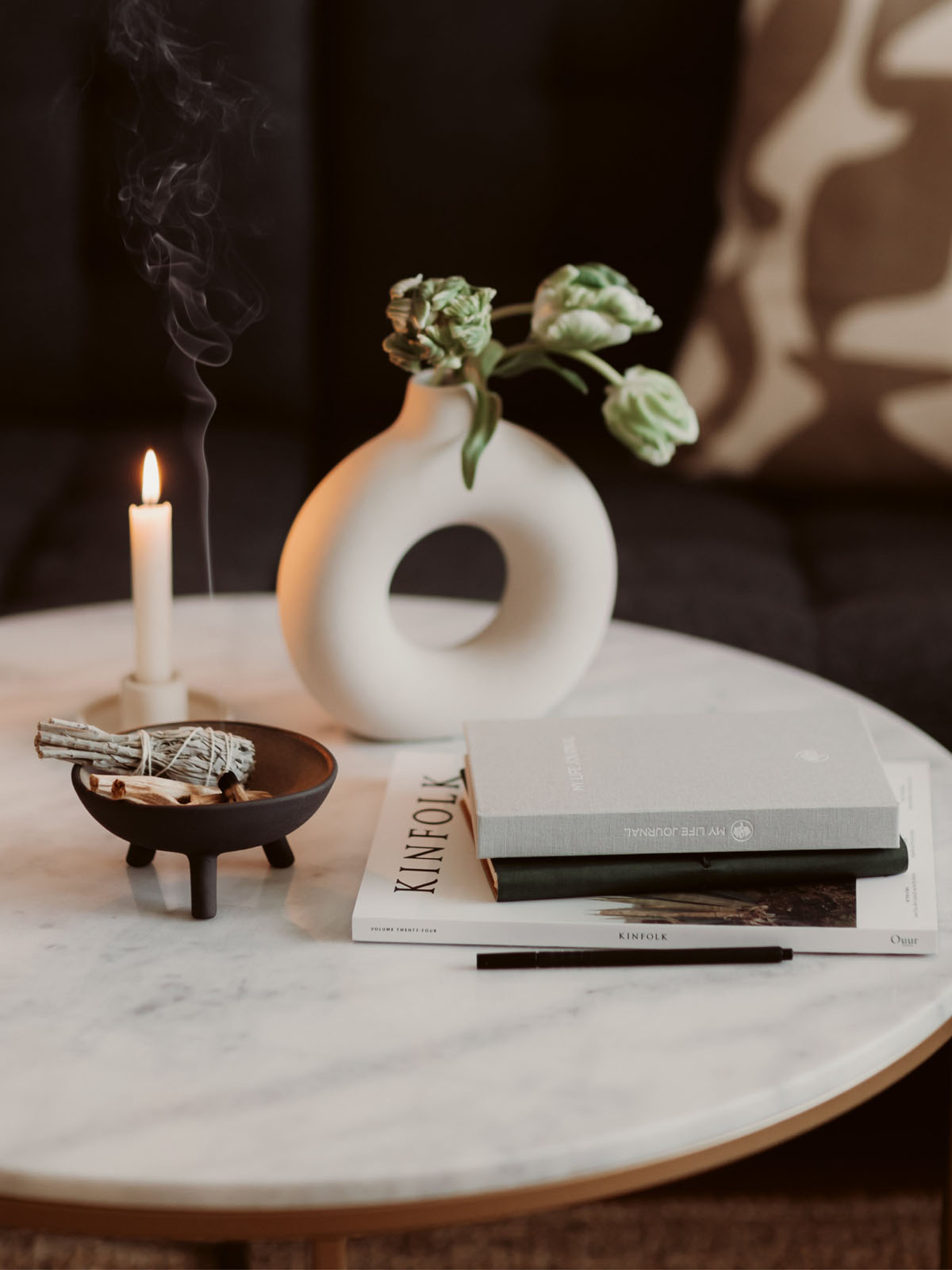

Put an x in your calendar next to each day that you’ve finished your Morning Pages.
Reward yourself every few weeks for keeping the streak going.
16. Romanticize the process
Light a scented candle, put on a classical piano playlist or dab on some of your favorite perfume before you start journaling.
This makes your time with Morning Pages a real sensory pleasure.
17. Mark and highlight your writing
If you come up with some new ideas while doing your Morning Pages, highlight the passage or number the items.
This creates an easy reference when you want to refer back to your journal.
18. Do Morning Pages first thing
Don’t wait too long after you wake up to start your Morning Pages.
“You’re trying to catch yourself before your ego’s defenses are in place,” Cameron says.
Morning Pages must be done early in the morning when your brain is still in touch with that subconscious world you inhabit in your sleep.
19. Avoid distraction
Turn off your phone and mute the TV.
Don’t take breaks to check your emails or refill your tea.
Start at page 1 and don’t stop until you reach page 3.
This is essential to write uncensored, stream-of-consciousness entries.
If there’s noise like your neighbors or construction, try some noise-cancelling headphones or a calming playlist.
20. What to do with old morning pages?
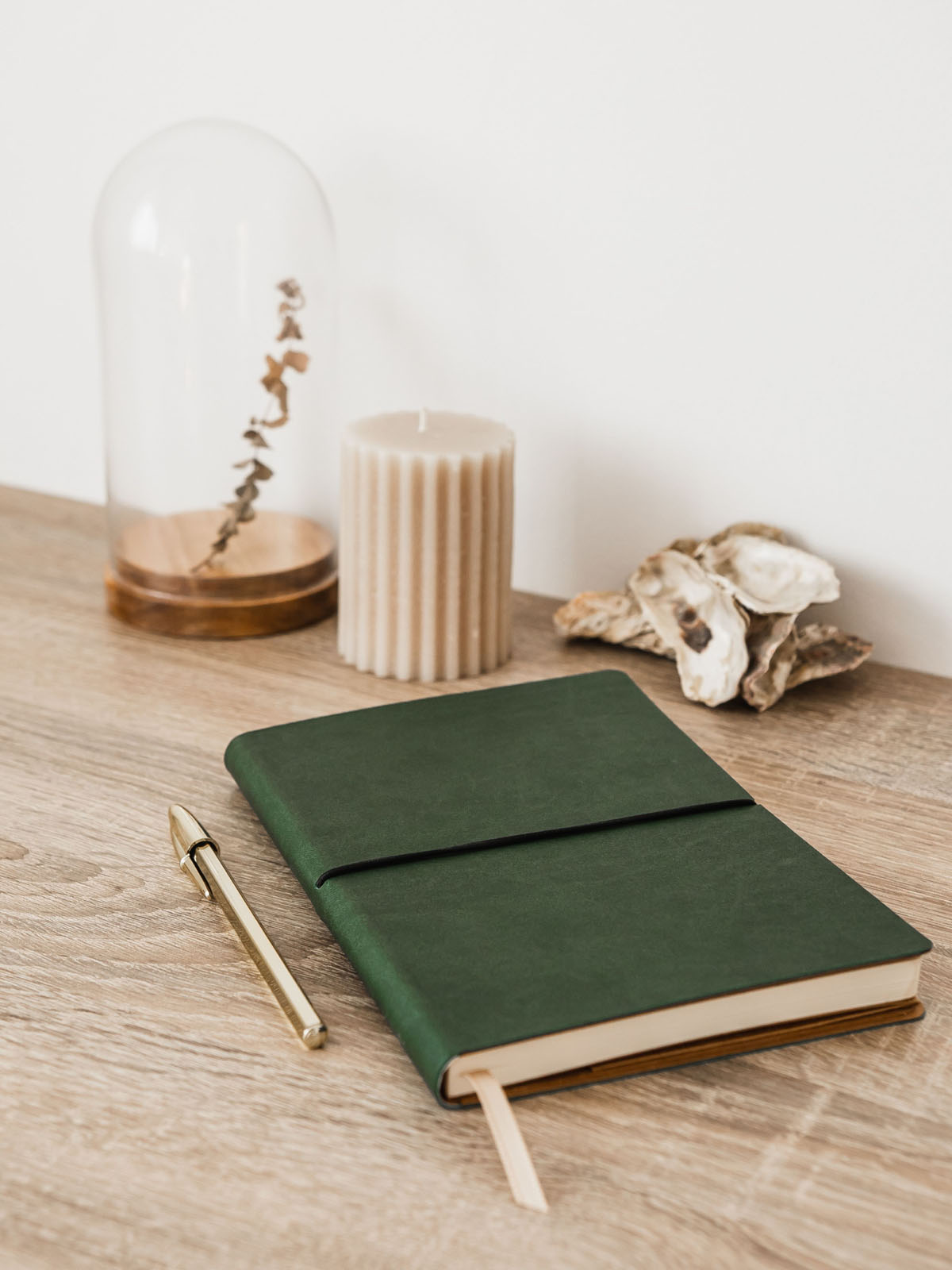

Don’t go back to re-read your old journal entries.
Morning Pages aren’t about creating a piece of writing that you’ll want to treasure forever. They’re a process to get your thoughts out of your head.
If you re-read entires, you’ll be tempted to judge your own writing. And your inner critic will likely tell you how silly or meaningless your journal sounds.
But don’t listen and keep going. Morning Pages are not an exercise in crafting eloquent prose. They’re all about clarity and release.
Conclusion
Once you get into the habit of writing daily Morning Pages, you’ll witness their incredible impact on your mental health.
You won’t ever want to stop.
And while it sounds daunting to fill up 3 full pages every single morning, you’ll find that doing Morning Pages regularly releases your inhibitions.
It makes you a better observer of your everyday life and puts you in touch with your emotions.
I would love to hear from you. Have you tried writing Morning Pages?
MORE RESOURCES:
Journaling for Mental Health (And 30 Powerful Prompts)
100 Best Journaling Ideas (For Anxiety, Clarity And More)
14 Life-Changing Journaling Techniques
18 Incredible Journaling Benefits (And How To Start)
17 Journaling Tips For Beginners (And How To Start)
Pin it:
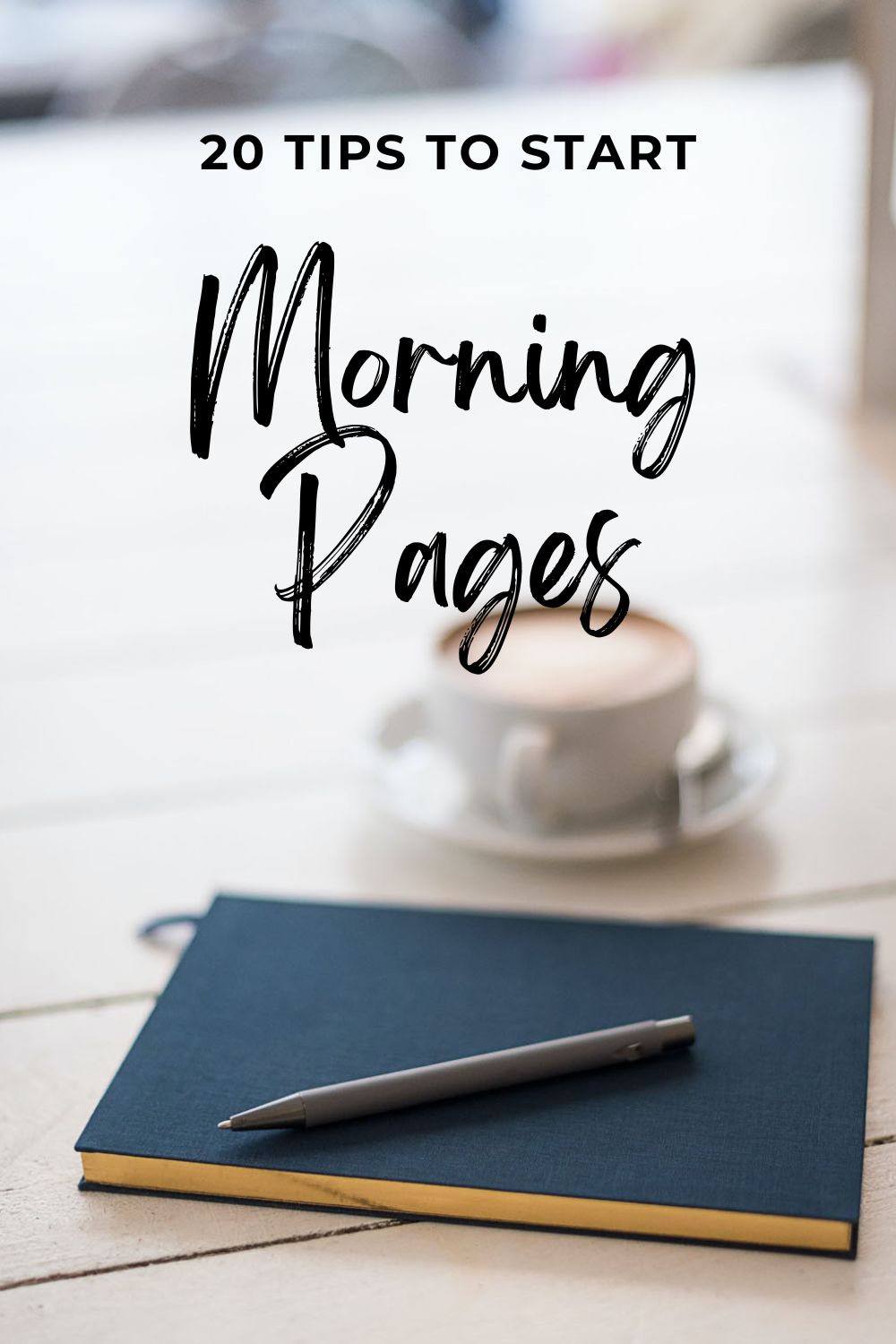

Discover more from Slow Travel News
Subscribe to get the latest posts sent to your email.



